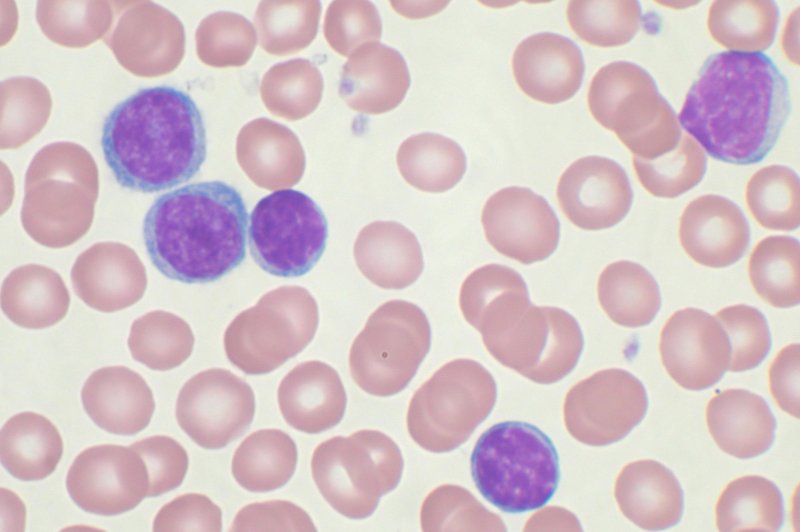Researchers have discovered new treatment could make disease worse in certain cases, including cancer. Peripheral blood smear showing Chronic lymphocytic leukemia cells. Photo by Mary Ann Thompson/Wikimedia Commons
EXETER, England, Dec. 30 (UPI) -- The use of pacifist microbes to treat disease may actually make the aggressive pathogen stronger, according to a new report by the University of Exeter in England.
The unexpected findings are leading to calls for urgent research into the implications of using a "fire to fight fire" approach to combat disease.
The process of introducing less-potent strains of a disease into a population of disease-causing microbes, a common practice in the treatment of diseases such as cancer, can lead to an increase in the severity of the disease, according to a new study.
Up until now, this practice was shown to reduce disease severity and damage to the infected host, but scientists found that using this strategy in a plant pathogen could go drastically wrong and have devastating consequences to the host plant.
In an investigation of rice blast disease, Professor Ivana Gudelj, a mathematical biologist, and Professor Nick Talbot, a plant disease specialist, introduced a mixed population of the fungus, with an aggressive strain and a pacifist mutant, into rice.
The expectation was that the disease severity would decrease due to the presence of the pacifist strain, but the opposite occurred, and the plant died from a much more severe form of the disease.
Researchers found that in some circumstances, pacifists "helped" aggressive microbes to be more efficient in using resources from the host.
"Our study shows that a promising disease management strategy may not always be effective and indeed may have damaging unforeseen consequences," Gudelj said in a press release. "Importantly, our work also provides a foundation for the analysis of when, and why, this can happen. We find that the mechanisms driving our unexpected findings when treating rice blast infection are pertinent for many diseases involving bacterial and fungal pathogens."
The research emphasizes the need for these new strategies to be thoroughly tested before being used therapeutically.
"Our findings are of central importance in understanding how microbial infections evolve, but also have wider significance for the treatment of cancer and the therapeutic control of disease in humans, animals and plants," Richard Lindsay, Ph.D. student and member of the research team, said in a press release.
The study was published in eLife.















